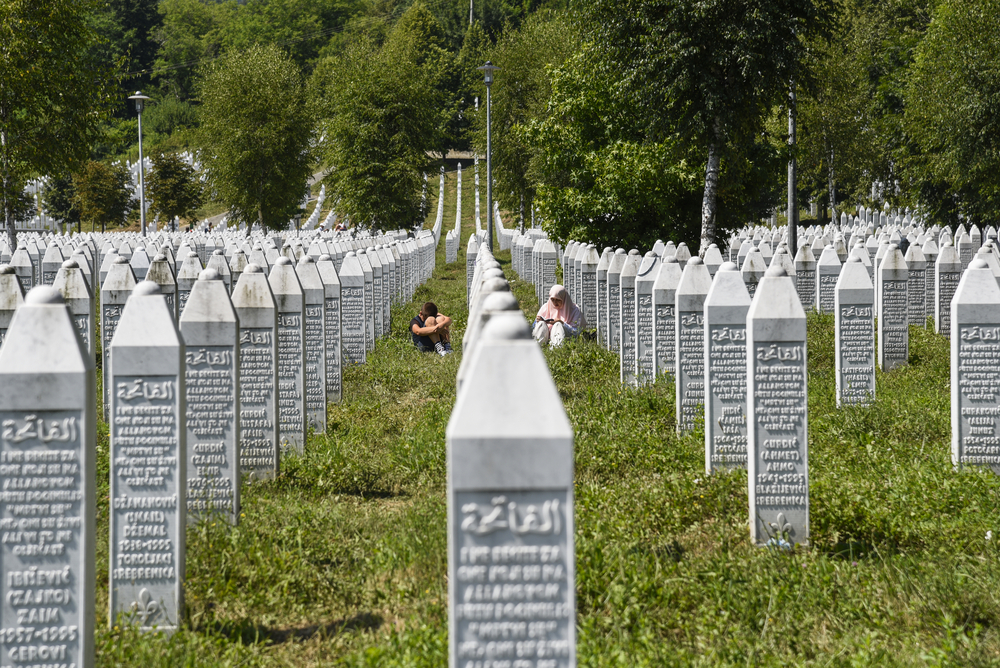Towards a dissolution? Lex Inzko and the fight over history
In July 1995 in and around the town of Srebrenica the population of Bosnian Muslims was massacred by the military forces of the Bosnian Serbs under the command of General Ratko Mladić. Opinions on how to describe these mass killings differ between those who believe it was “only” a war crime and those who, in line with the verdict of the International Criminal Tribunal for the former Yugoslavia, recognise it as a genocide. Evidently, Srebrenica’s history did not end with the signing of the Dayton Peace Agreement. In the post-war period it has been faced with a new challenge: the denial.
December 7, 2022 -
Aleksandra Zdeb
-
Hot TopicsIssue 6 2022Magazine

The Srebrenica-Potocari memorial and cemetery for the victims of the 1995 massacre over muslims in Bosnia Herzegovina. Photo: ToskanaINC / Shutterstock

































